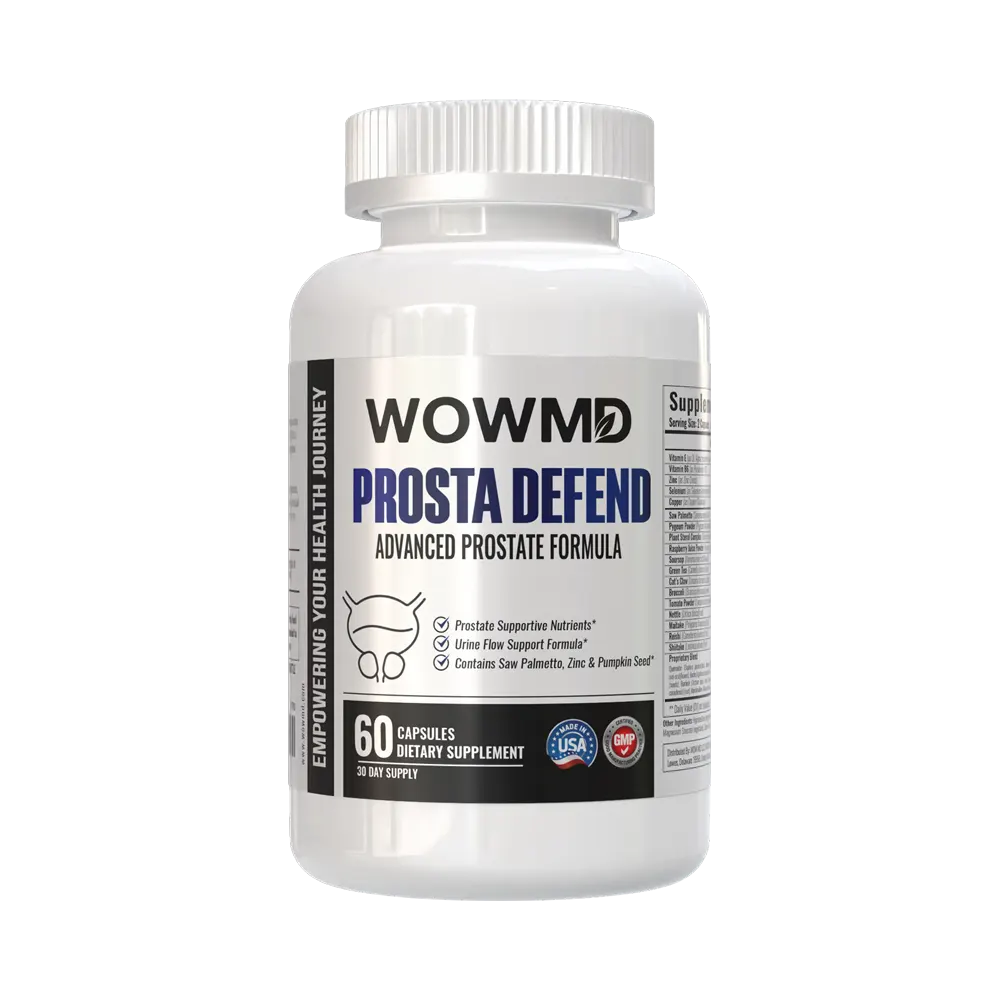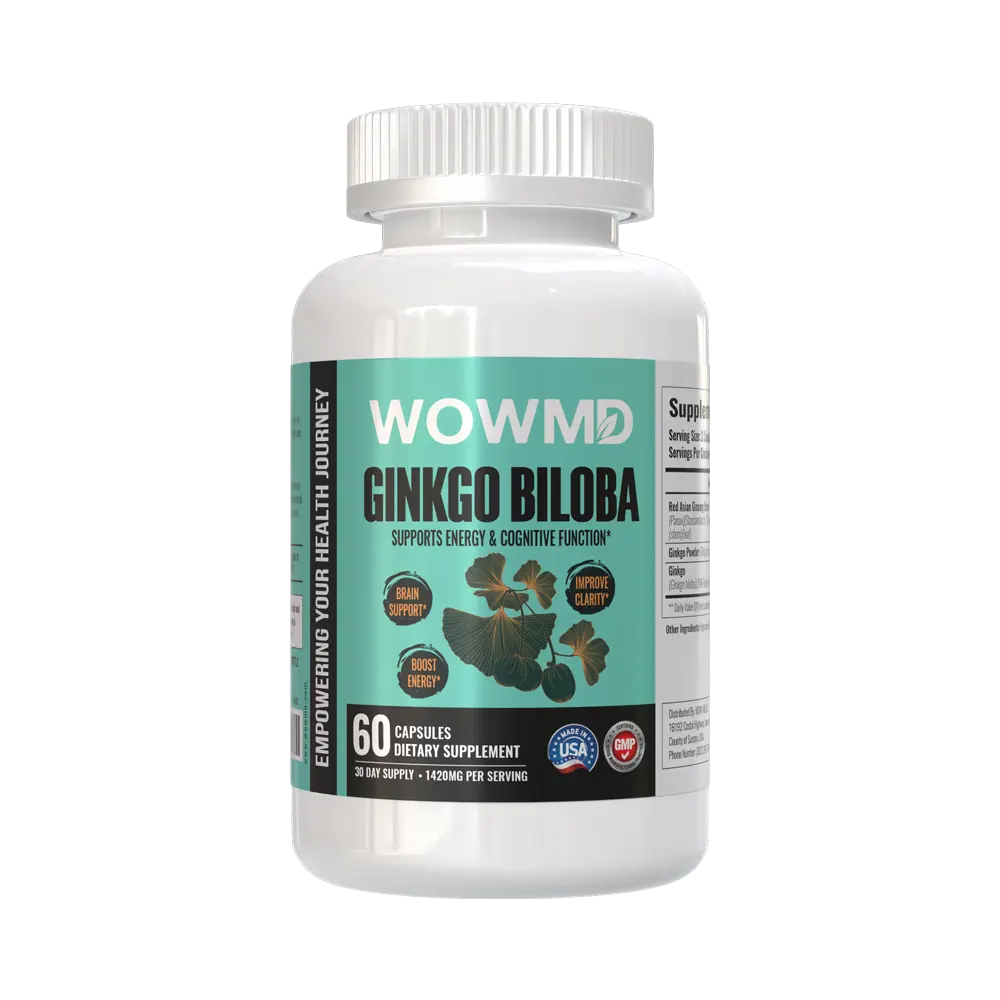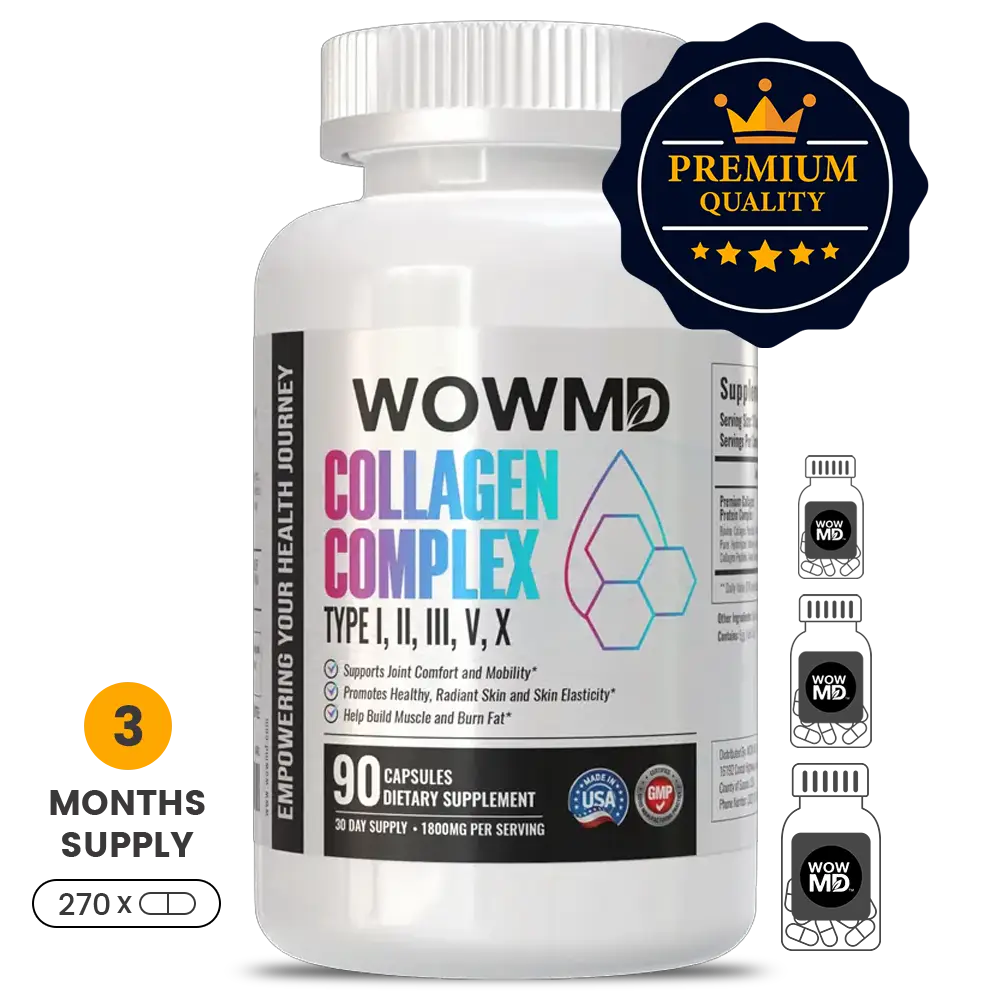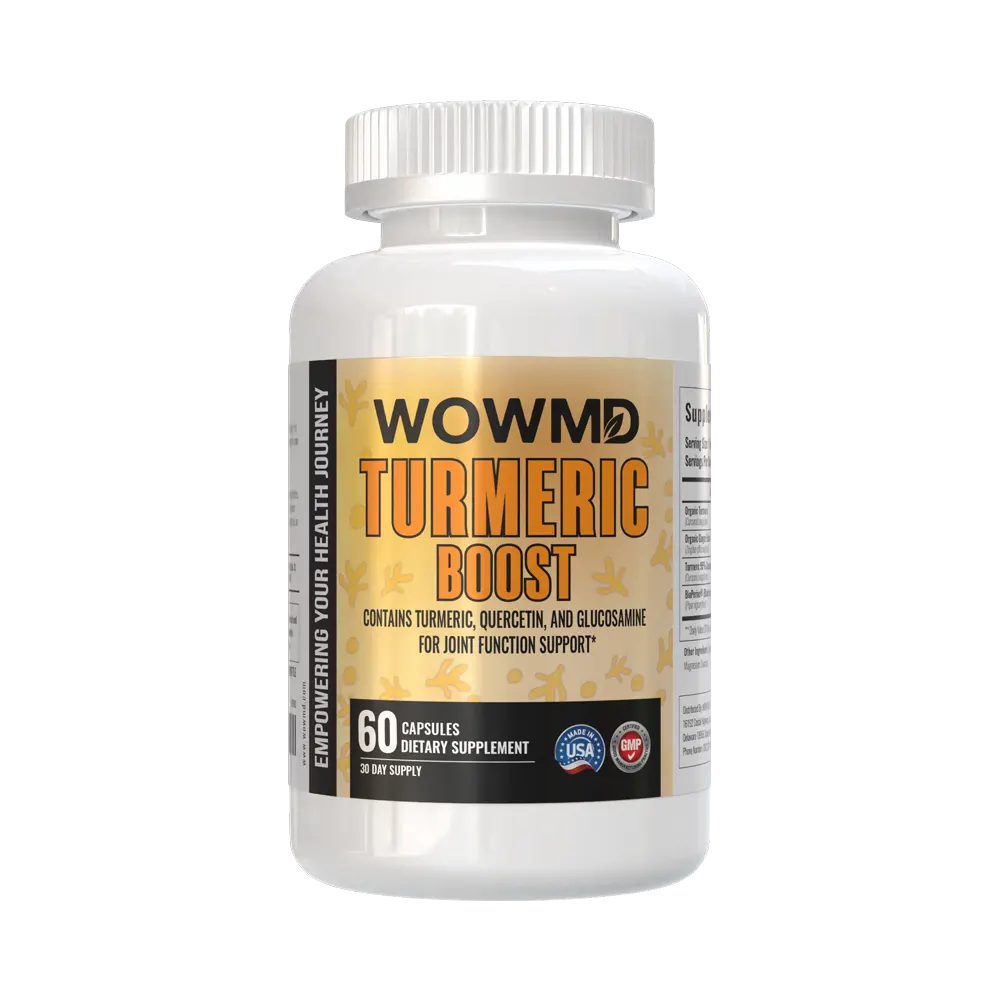Finding the Best Prostate Supplement for Enlarged Prostate – A Step-by-Step Guide

Enlarged prostate challenges can disrupt daily life and personal comfort significantly.
Thousands of men struggle with urinary problems, frequent nighttime bathroom visits, and reduced quality of life.
Understanding how to select the right prostate supplement can make a tremendous difference in managing these challenging symptoms.
An enlarged prostate, also known as benign prostatic hyperplasia (BPH), is a common condition affecting men as they age.
The prostate gland, located below the bladder, grows larger, potentially pressing on the urethra and causing urinary issues.
This comprehensive guide will walk you through essential steps to find the most effective prostate supplement for your specific health needs.
We'll explore key ingredients, scientific research, and practical considerations that help men make informed decisions about prostate wellness.
Who is at Risk?
- Men over 50 are most likely to experience prostate enlargement.
- Lifestyle factors, genetics, and hormonal changes play a role.
- Certain dietary habits and a lack of physical activity may increase the likelihood.
Early warning signs to watch for:
- Frequent urination, especially at night.
- Difficulty starting or maintaining a urine stream.
- A feeling of incomplete bladder emptying. Ignoring these symptoms can lead to complications, including urinary tract infections and bladder stones.
Natural Ways to Support Prostate Health
Many men turn to natural solutions to manage prostate health, given their minimal side effects and accessibility. Supplements are a key component of these approaches.
Why are natural solutions becoming popular?
- Avoidance of prescription medication side effects.
- A holistic way to manage symptoms.
- Evidence supporting the efficacy of certain ingredients in reducing prostate size and improving urinary flow.
How supplements fit into a holistic approach:
- Supplements complement dietary changes, like increasing intake of fruits, vegetables, and healthy fats.
- When combined with regular exercise and hydration, they can enhance overall prostate health.
Top Benefits of Prostate Supplements
Prostate supplements are designed to alleviate common symptoms of BPH and improve quality of life.
- Reducing frequent urination and improving flow: Supplements with ingredients like rye pollen extract or beta-sitosterol help strengthen urinary flow and reduce nighttime trips to the bathroom.
- Promoting overall prostate health: Nutrients like selenium and zinc support cellular health, helping the prostate function optimally.
- Supporting long-term urinary health: Natural anti-inflammatory properties found in supplements prevent irritation and maintain a healthy urinary tract.
Key Ingredients That Make a Difference
Understanding the active components in supplements is crucial to finding the right fit.
- Beta-sitosterol: Found in many plants, it strengthens urine flow and helps the bladder empty completely.
- Rye pollen extract: Relieves symptoms like painful urination and dribbling. It may also reduce prostate size over time.
- Saw palmetto: Commonly used to manage urinary symptoms, although its effectiveness varies between studies.
- Lycopene: A powerful antioxidant found in tomatoes, it reduces inflammation and protects cells from damage.
- Stinging nettle: Reduces frequent urination and improves flow when used alongside other supplements.
READ MORE - Best Saw Palmetto Supplement for Prostate Health
Quick, Easy-To-Make, And Delicious Recipes With Prostate Health Benefits
1. Tomato and Spinach Scramble
Ingredients:
- 2 large eggs (rich in selenium and zinc)
- 1 cup fresh spinach (antioxidants and anti-inflammatory benefits)
- 1 medium tomato, diced (lycopene)
- 1 clove garlic, minced (anti-inflammatory properties)
- 1 tbsp olive oil
- Pinch of salt and pepper
Instructions:
- Heat olive oil in a non-stick skillet over medium heat.
- Add garlic and sauté until fragrant.
- Toss in the spinach and diced tomato. Cook until the spinach wilts and tomatoes soften (about 3 minutes).
- Beat the eggs, season with salt and pepper, and pour them into the pan.
- Stir continuously until the eggs are cooked to your liking. Serve hot with whole-grain toast.
Benefits: Tomatoes provide lycopene, which supports prostate health, while spinach and eggs add essential nutrients like selenium, zinc, and antioxidants.
2. Pumpkin Seed and Berry Smoothie
Ingredients:
- 1 cup unsweetened almond milk
- 1 banana
- 1/4 cup raw pumpkin seeds (zinc and anti-inflammatory properties)
- 1/2 cup frozen mixed berries (antioxidants)
- 1 tbsp ground flaxseed (omega-3 fatty acids)
- 1 tsp honey (optional)
Instructions:
- Combine all ingredients in a blender.
- Blend on high until smooth and creamy.
- Pour into a glass and enjoy!
Benefits: Pumpkin seeds are rich in zinc and may reduce prostate size. Berries and flaxseeds provide additional antioxidants and nutrients to support overall health.
3. Garlic and Rye Crusted Salmon
Ingredients:
- 2 salmon fillets (omega-3 fatty acids)
- 1/2 cup rye breadcrumbs (beta-sitosterol and fiber)
- 2 cloves garlic, minced (anti-inflammatory)
- 1 tbsp Dijon mustard
- 1 tbsp olive oil
- Lemon wedges for serving
Instructions:
- Preheat the oven to 400°F (200°C). Line a baking sheet with parchment paper.
- Mix rye breadcrumbs, minced garlic, and olive oil in a bowl.
- Spread a thin layer of Dijon mustard on the salmon fillets.
- Press the breadcrumb mixture onto the salmon, coating the top evenly.
- Bake for 10–12 minutes or until the salmon flakes easily with a fork. Serve with a squeeze of lemon.
Benefits: Salmon is an excellent source of omega-3s, while rye and garlic add beta-sitosterol and anti-inflammatory properties.
4. Stir-Fried Broccoli and Tofu
Ingredients:
- 1 cup broccoli florets (rich in sulforaphane and antioxidants)
- 1/2 block firm tofu, cubed (isoflavones)
- 1 tbsp soy sauce (additional isoflavones)
- 1 tsp sesame oil
- 1 clove garlic, minced
- 1 tsp grated ginger
- 1 tbsp sesame seeds (zinc and antioxidants)
Instructions:
- Heat sesame oil in a pan over medium-high heat.
- Add garlic and ginger, cooking until fragrant.
- Toss in broccoli and tofu, stirring to coat with the oil.
- Add soy sauce and stir-fry for 5–7 minutes until the broccoli is tender-crisp.
- Sprinkle sesame seeds on top and serve over brown rice or quinoa.
Benefits: Broccoli provides sulforaphane, a compound known to reduce cancer risks, while tofu adds prostate-benefiting isoflavones.
5. Avocado and Pumpkin Seed Salad
Ingredients:
- 1 ripe avocado, diced (healthy fats and antioxidants)
- 2 cups mixed greens (spinach, kale, arugula)
- 1/4 cup raw pumpkin seeds (zinc)
- 1/2 cup cherry tomatoes, halved (lycopene)
- 1 tbsp olive oil
- 1 tbsp balsamic vinegar
- Salt and pepper to taste
Instructions:
- Combine mixed greens, diced avocado, cherry tomatoes, and pumpkin seeds in a large bowl.
- Drizzle with olive oil and balsamic vinegar.
- Toss gently to combine, season with salt and pepper, and serve.
Benefits: This salad is packed with lycopene, zinc, and healthy fats, making it a prostate-friendly powerhouse.
How to Identify the Right Supplement for You
Choosing the best prostate supplement for an enlarged prostate requires careful consideration.
What makes a supplement “the best”?
- High-quality ingredients backed by clinical studies.
- A balanced blend of nutrients that target multiple symptoms.
Tips for selecting supplements:
- Look for third-party certifications to ensure quality.
- Avoid products with excessive fillers or artificial additives.
Questions to ask your doctor:
- Are these supplements safe with my current medications?
- What dosage would be most effective for my symptoms?
- Should I monitor specific side effects while using the supplement?
Combining Supplements with a Healthy Lifestyle
Supplements work best when paired with lifestyle changes that promote prostate health.
Foods that improve prostate health:
- Include tomatoes, pumpkin seeds, and cruciferous vegetables in your diet.
- Avoid processed foods and excessive alcohol consumption.
Exercises that strengthen pelvic health:
- Pelvic floor exercises (Kegels) can reduce symptoms like urinary leakage.
- Regular aerobic and strength-training exercises boost overall health.
Stress management:
- Chronic stress can worsen prostate symptoms. Practice relaxation techniques like deep breathing or meditation.
Tips for Making Prostate Health a Long-Term Priority
Building healthy habits ensures consistent improvement in prostate health.
1. Monitoring progress:
- Keep a symptom journal to track improvements.
- Discuss any changes with your doctor during regular check-ups.
2. Adjusting your routine as needed:
- If a supplement isn’t working, explore other natural remedies.
- Maintain flexibility with your diet and exercise habits.
3. When to seek professional help:
- If symptoms worsen despite lifestyle changes.
- For severe symptoms, such as complete urinary retention or pain.
Conclusion
Managing an enlarged prostate through natural supplements and a healthy lifestyle can significantly improve symptoms and overall prostate health. By understanding the key ingredients in prostate supplements, such as beta-sitosterol, rye pollen extract, and saw palmetto, and incorporating prostate-friendly foods and exercises, men can take proactive steps toward reducing discomfort and enhancing quality of life.
However, it’s essential to consult with a healthcare provider to ensure the right supplement choice and dosage, alongside regular monitoring and lifestyle adjustments, for optimal long-term results. With consistency and the right support, it’s possible to manage an enlarged prostate effectively and maintain overall well-being.
About WOWMD Staff
The WOWMD Staff category features a diverse team of writers, each bringing specialized knowledge in areas such as nutrition, fitness, wellness, and more. Articles in this category benefit from insights provided by multiple experts. All content is peer-reviewed and regularly updated to ensure compliance with our editorial standards.
Evidence Based Research
This WOWMD content has been reviewed, as well as checked for facts, so as to guarantee the best possible accuracy.
We follow a strict editorial policy, especially related to the sources we use. Our articles are resourced from reputable online pages, with research drawn from academic institutions and peer-reviewed studies. You can click on the numbers in the parentheses (1, 2, etc.) and check out those references.
The feedback form on this page can be used to report content that is not accurate, up-to-date or questionable in any manner.
We do NOT intend for the information presented through our articles to replace the medical relationship with a qualified physician, nor does it represent specialized advice.


 Skin Detoxification Bundle
Skin Detoxification Bundle Complete Weight Loss Bundle
Complete Weight Loss Bundle Heart Care Bundle
Heart Care Bundle Better Immunity Bundle
Better Immunity Bundle  Men's Immunity & Prostate Health Bundle
Men's Immunity & Prostate Health Bundle Stress + Energy + Wellness Combo
Stress + Energy + Wellness Combo  Energy Booster Combo
Energy Booster Combo Natural Skin Care Bundle
Natural Skin Care Bundle Workout Supplements Combo
Workout Supplements Combo Cognitive Health & Vision Combo
Cognitive Health & Vision Combo Joint Health Support Combo
Joint Health Support Combo

















 By WOWMD Staff
By WOWMD Staff